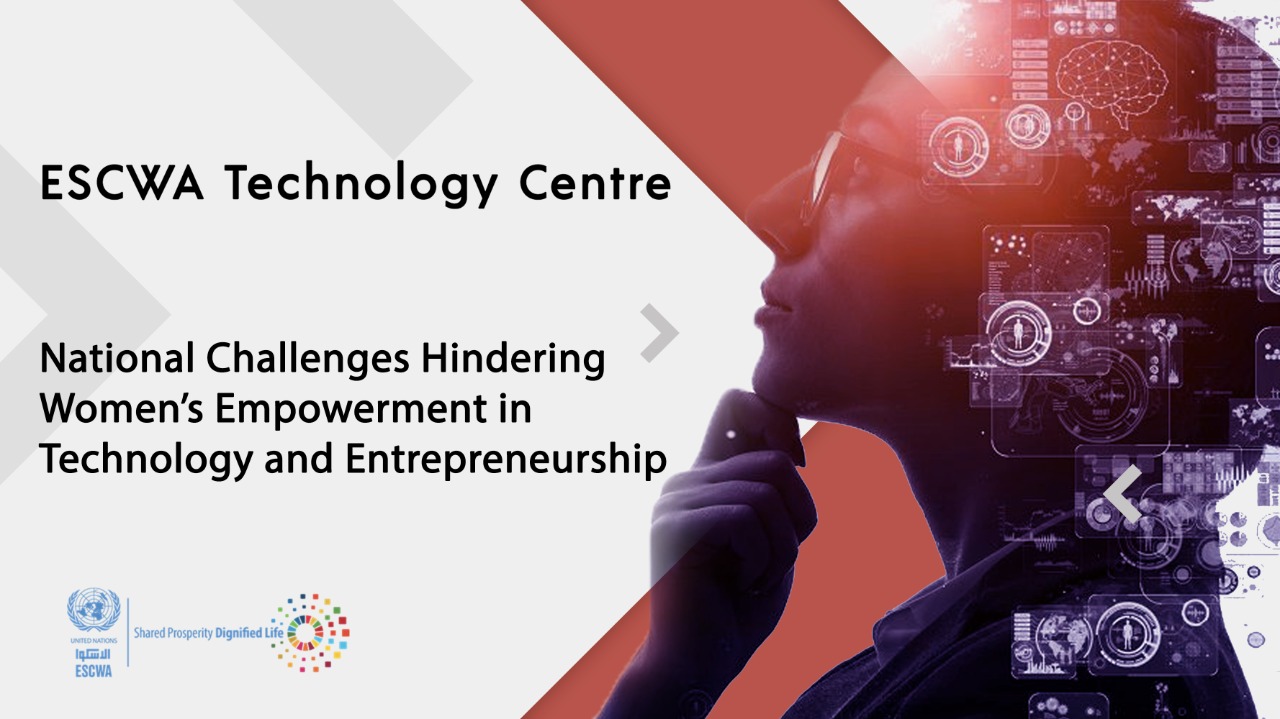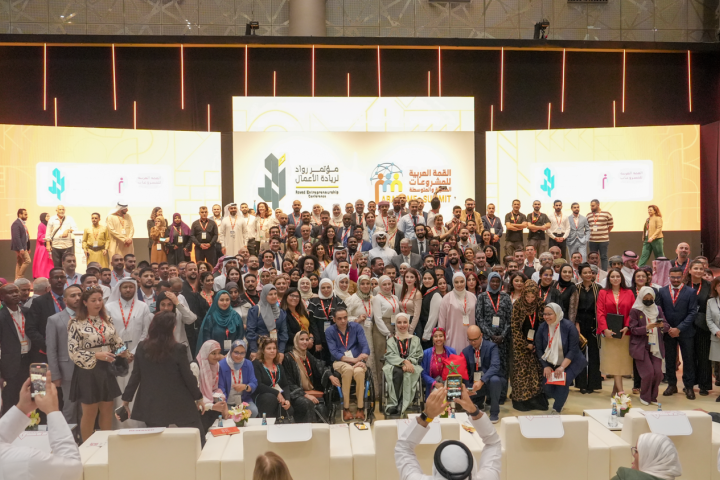Beirut-Amman, 04 January 2022--Female entrepreneurship allows boosting employment and career advancement opportunities for women. To address the national challenges hindering their empowerment in technology and entrepreneurship across the Arab region, the Technology Centre (ETC) of the United Nations Economic and Social Commission for Western Asia (ESCWA) launched the Women Empowerment for Technology and Entrepreneurship (AWETE) programme at the beginning of 2021.
ETC also announced the “Arab women empowerment ecosystem” maps developed under the programme, in addition to a brief study on the challenges that women face when accessing technology and entrepreneurial opportunities in the region.
AWETE program included a series of five roundtable discussions that were held in Egypt, Iraq, Jordan, Lebanon, and Palestine gathering key actors and experts advocating for women's rights.
“Effective partnerships are essential to the sustainability of the work done by the many organizations across the region to increase and enhance the participation of women as leaders of change,” said Kareem Hassan, ETC Executive Director. “We need to work collaboratively to ensure that women possess all the right tools to be in the lead, as entrepreneurship is the primary trend for economic independence,” he added.
Discussions revolved around the team's desk research findings on data demonstrating the extent to which women are provided access to digital technologies, entrepreneurial opportunities, and the intersection between the two. The program provided a space for gender experts and relevant stakeholders to share national findings and consequent recommendations related to the development of women's status in their country, to further feed into the holistic and comprehensive brief study.
Participants agreed on a set of recommendations emphasizing the need to reform and decentralize non-governmental assistance provided for women entrepreneurs to integrate innovation and sustainability, and to adopt community-based approaches to increase awareness on financial and digital literacy, and to set up gender-sensitive social and digital security mechanisms to protect small businesses from financial and human crises.
They also stressed the importance of incorporating the concept of entrepreneurship in the educational curriculum to inspire girls and young women and establishing a unified platform through which women seeking entrepreneurship can reach national networks and funding opportunities.




